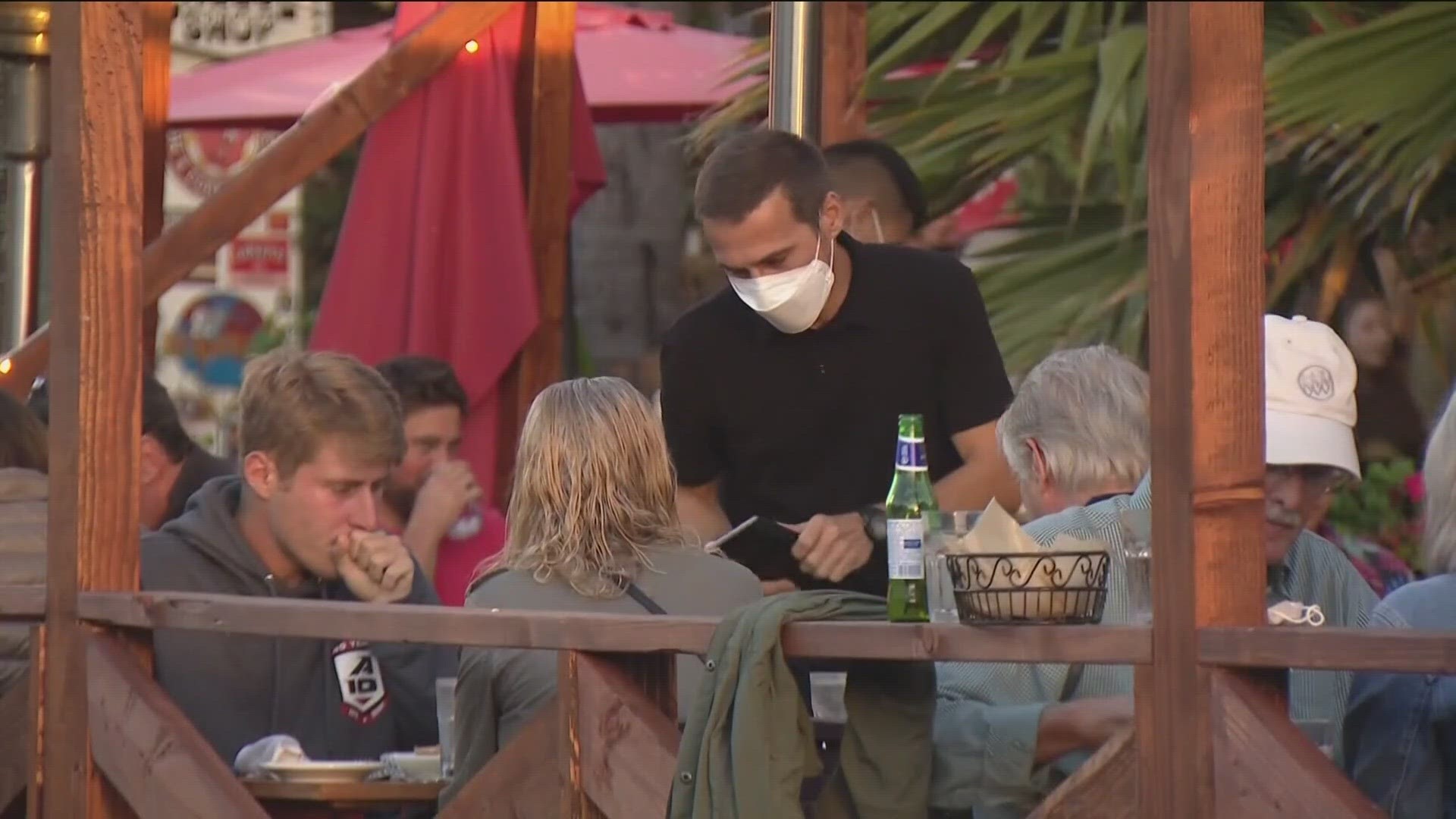SAN DIEGO — San Diego Mayor Kevin Faulconer highlighted nurses and in-home caregivers at a briefing Wednesday. Faulconer also outlined resources for seniors who are one of the groups most vulnerable to contracting COVID-19.
In honor of National Nurses Day, Faulconer opened the briefing by thanking nurses in San Diego for their life-saving work especially in the time of COVID-19.
The mayor also spoke about the hard work of in-home care providers who do everything from grocery shopping to filling prescriptions for those who cannot leave their home due to increased risks of contracting the novel coronavirus.
"They provide kindness and care for those who would otherwise be alone," Faulconer said.
The mayor also spoke about the isolation of seniors and encouraged locals to sign up for the San Diego's Social Calls Program. He said while seniors may not be able to family and friends they can still connect with others to not feel so alone. City staff will check in with those who sign up each morning Monday - Friday and inquire about needs or just provide time to chat.
The mayor was joined by Andy Field, Park and Rec Department Director, City of San Diego; Doug Moore, Executive Director, Union of Domestic Workers Local 3930; and Nicanora Montenegro, an in-home caregiver for the briefing.
Montenegro gave an emotional speech about her work as a caregiver and the difficulties she faces.
------------------------------------
News 8 has joined forces with The San Diego Foundation to raise immediate, emergency funds for our most vulnerable neighbors in need. Here is how you can help.
We also have a Frequently Asked Questions page we will continue updating with the latest information and reports.
Click here to watch "Facts Not Fear," a News 8 Special on coronavirus from March 26, 2020.
BACKGROUND
According to the CDC, coronavirus (COVID-19) is a family of viruses that is spreadable from person to person. Coronavirus is believed to have been first detected in a seafood market in Wuhan, China in December 2019. If someone is sick with coronavirus, the symptoms they may show include mild to severe respiratory illness, cough, and difficulty breathing.
Currently, there is no vaccine, however, the CDC suggests the following precautions, as with any other respiratory illness:
Know how it spreads
There is no vaccine
The best way to prevent illness is to avoid being exposed to the virus
It is thought to spread mainly from person-person between people in close contact
And believed to be spread by respiratory droplets produced when an infected person coughs or sneezes
Protect yourself
Wash your hands with soap and water for a minimum of 20 seconds
If soap and water aren't available, use hand sanitizer that contains at least 60% alcohol
Avoid touching your eyes, nose, and mouth
Avoid close contact with people who are sick
Put distance between yourselves and others
Protect others
Stay home when you are sick
Wear a facemask if you are sick
Cover your cough or sneeze with a tissue, then throw the tissue in the trash
If you don't have tissue, cough or sneeze into the inside of your elbow
Immediately wash your hands after coughing and sneezing
Clean and disinfect frequently touched objects and surfaces using a regular household cleaning spray or wipe
You can find information on disinfecting and cleaning on the CDC's How to Protect Yourself page.
The California Department of Public Health has issued guidance on the use of cloth face coverings to protect against the spread of the novel coronavirus COVID-19.
The County of San Diego has made face coverings mandatory for those working with the public including grocery stores, pharmacies, gas stations, convenience stores, and similar businesses.
While officials say these face coverings are not a substitute for practices like social distancing and handwashing, there is evidence to suggest that the use of cloth face coverings by the public during a pandemic could help reduce disease transmission. Officials do not recommend the public use N-95 or surgical masks which are needed by health care workers and first responders.



